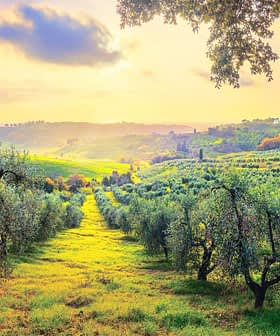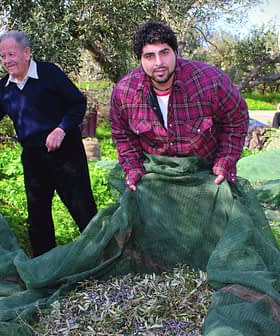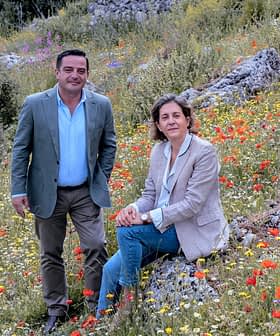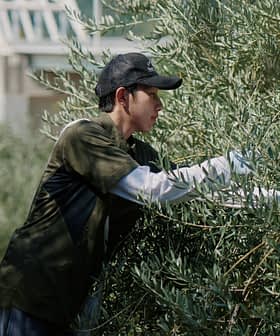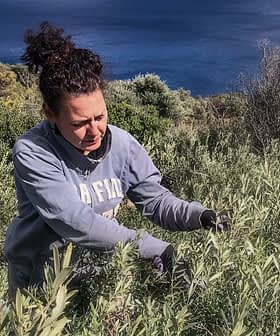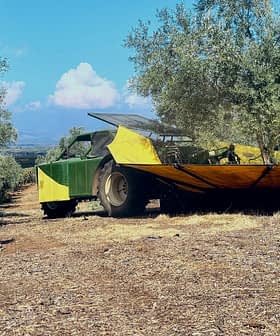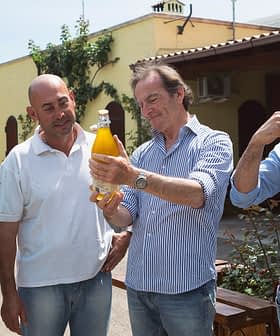Verde Louro Among Brazil's New Generation of Outstanding Producers
In Rio Grande do Sul, the young producer overcame climate extremes to win four awards at the World Olive Oil Competition.
 Harvesting olives by hand in Brazil's picturesque campagna gaucha (Photo: Verde Louro Azeites)
Harvesting olives by hand in Brazil's picturesque campagna gaucha (Photo: Verde Louro Azeites) Verde Louro Azeites, a Brazilian extra virgin olive oil producer, has quickly become an award-winning company in Rio Grande do Sul, winning multiple Gold and Silver Awards at the NYIOOC World Olive Oil Competition. Despite facing challenges such as climate variability, the company continues to expand its groves and educate Brazilian consumers on the high quality and benefits of locally produced olive oil.
In the verdant expanse of Rio Grande do Sul, Verde Louro Azeites is among a new generation of producers putting Brazilian extra virgin olive oils on the map.
The company has evolved from a fledgling farm in Brazil’s southernmost state to an award-winning producer in less than ten years.
For Brazil, olive growing is still something fairly new. We are constantly learning.
At the 2023 NYIOOC World Olive Oil Competition, Verde Louro Azeites won two Gold and two Silver Awards, confirming the company’s longstanding pursuit of quality. “These results prove that we are on the right path and succeeding in our goals,” owner Daiana Fuhrmann told Olive Oil Times.
Founded in 2009 after Fuhrmann was inspired during trips to Europe and the Mediterranean, the company set out to produce high-quality extra virgin olive oil from olive trees cultivated in Brazil.
See Also:Producer Profiles“At that time, a few small producers had begun investing,” Fuhrmann said. “Combining this passion with the dream of entering the sector, the Verde Louro was founded.”
In 216, the company celebrated its first production with 1,500 liters of extra virgin olive oil from Arbequina, Arbosana and Koroneiki olives. Since then, Verde Louro Azeites has grown to more than 100 hectares in southern Rio Grande do Sul, near the so-called “campanha gaúcha.”
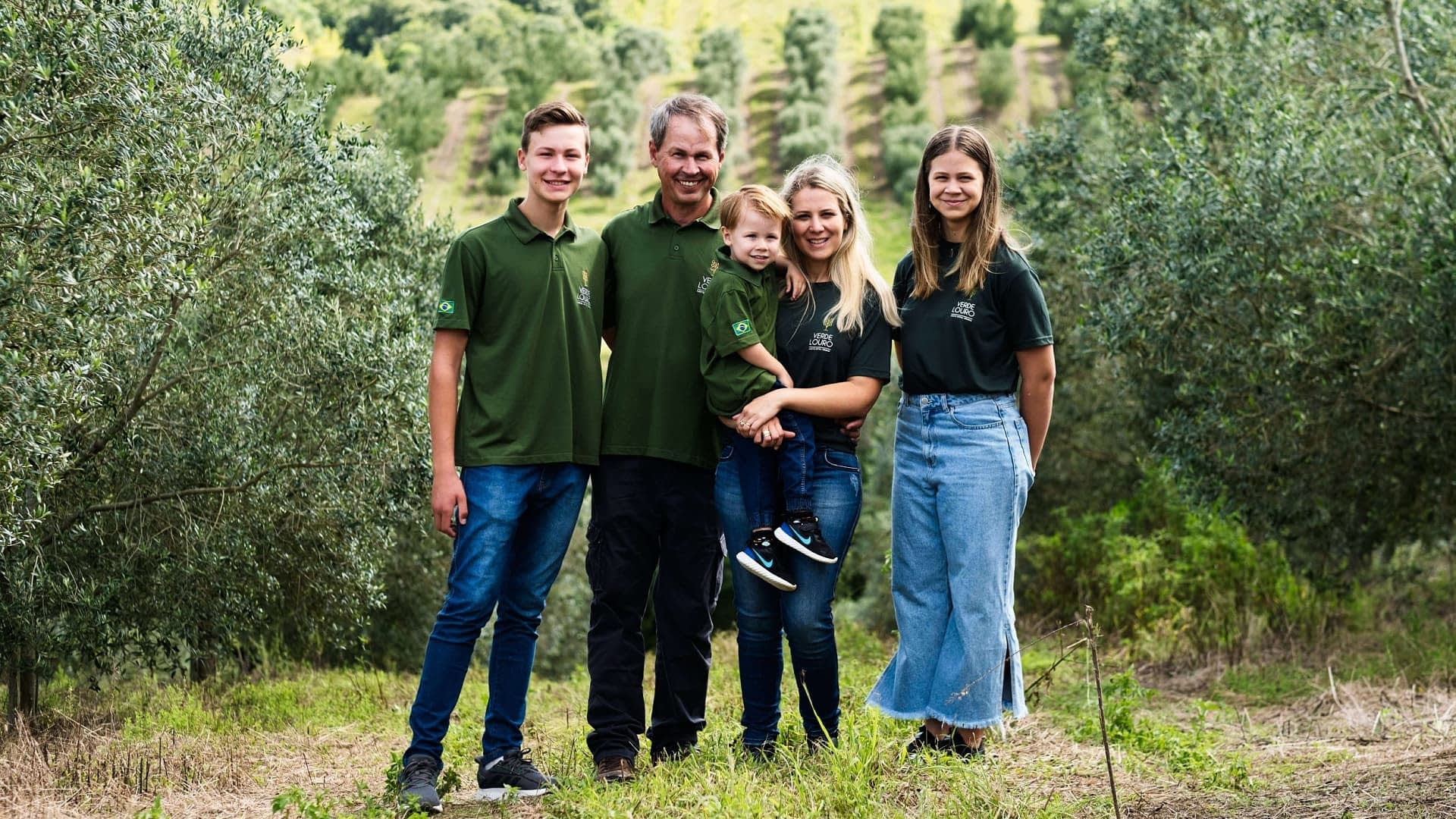
Daiana Fuhrmann and family in the Verde Louro olive groves (Photo: Verde Louro Azeites)
“It is a region characterized by a subtropical climate with an altitude of 386 meters, with periods of intense cold in winter and very hot [temperatures] in summer,” Fuhrmann said. “These conditions have a strong impact and request increasingly complex farming operations, particularly in recent years.”
“In 2022, we also had to cope with a severe drought stretching from mid-November to March 2023,” she added. “[During 2023,] rainfall began in August, and it is expected to last well into 2024.”
“The greatest challenge for us is climate, as weather directly impacts production volumes and the overall production costs,” Fuhrmann explained.
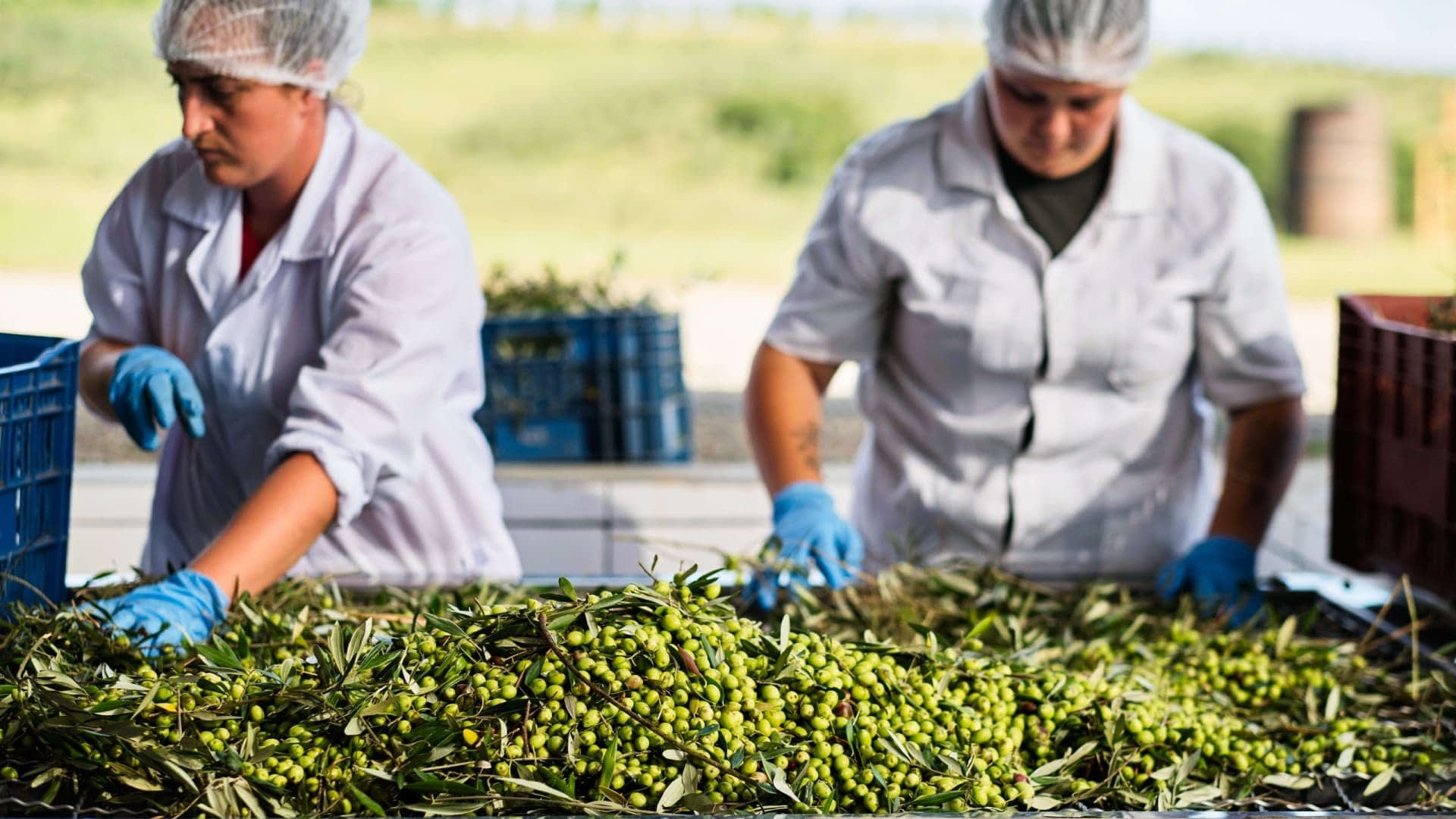
Olives are sorted ahead of milling to ensure the highest quality (Photo: Verde Louro Azeites)
The company’s state-of-the-art mill, a 450 square meters facility nestled amidst the olive groves, can transform up to 1,500 kilograms of fruit per hour.
“[The mill] allows to slash the time between olive harvest and milling, which makes the whole process faster,” she said.
“For Brazil, olive growing is still something fairly new,” Fuhrmann added. “We are constantly learning and are still very dependent on technologies imported by the traditional producing countries.”
The company is actively working on its resilience by integrating animal and vegetable farming, using sheep to control rival vegetation and fertilize the soil.
See Also:The best extra virgin olive oils from BrazilThe company also seeks to reduce the need for machinery by deploying best practices in the grove, an ongoing process.
In those conditions, the farm expanded its orchards to include more than 25,000 trees aged between five and 12 years. Its groves now comprise Arbequina, Arbosana, Koroneiki, Frantoio, Picual and Manzanilla.
Like other Brazilian producers, Verde Louro focuses on the domestic market, which is still more used to buying imported olive oil than trying the local product. “Brazilian consumers know olive oil well, but only the imported one,” Fuhrmann said.
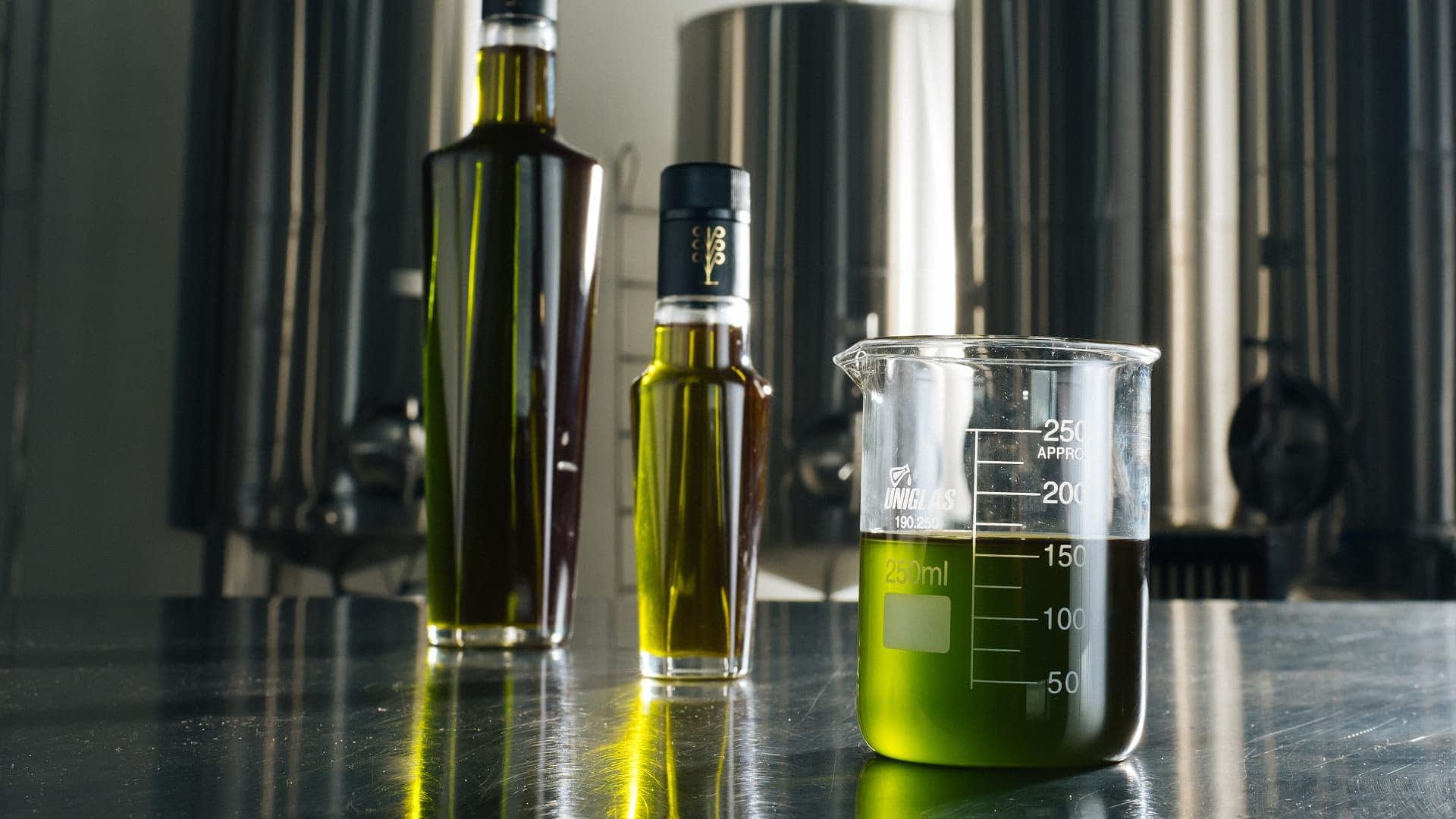
Fuhrmann believes quality is key to promoting Brazilian extra virign olive oil on the world stage. (Photo: Verde Louro Azeites)
With 85,000 tons of expected olive oil imports in the 2023/24 crop year, Brazil is the third largest importer after the United States and the European Union.
Still, perceptions are changing. “Some Brazilian producers recently began to be acknowledged as extra virgin olive oil producers, with a small production but a very high quality one,” Fuhrmann said.
“Consumers in Brazil now follow this work of ours, and they express a growing interest in award-winning olive oils, so consumption is developing, with national olive oils gaining traction,” she added.
Olive oil consumption in the country has been steadily increasing over the decades. According to International Olive Council data, olive oil consumption in Brazil rose from 13,500 tons in 1990/91 to 103,500 tons in 2021/22.
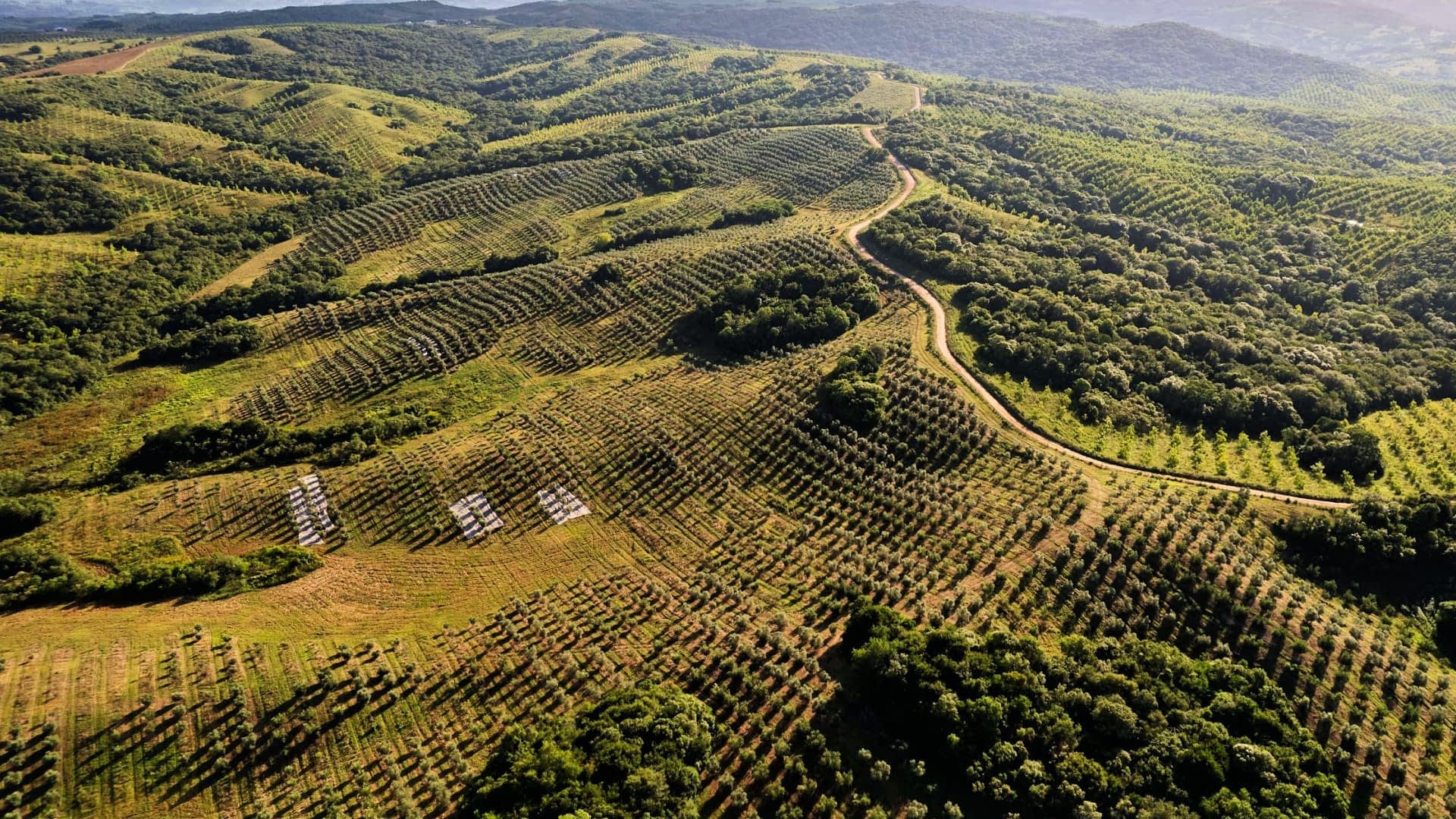
Verde Louro Azeites boasts 100 hectares of groves in the southern region of Rio Grande do Sul. (Photo: Verde Louro Azeites)
“Every day, Verde Louro works to show consumers how extraordinary extra virgin olive oil is, how it is produced and the beneficial impacts it can convey,” Fuhrmann said.
“We also [show them] the care we take in the production and make them realize the differences between a high-quality extra virgin olive oil and an olive oil produced in bulk,” she added.
“All of this work is compensating us with beautiful results,” Fuhrmann concluded.
Share this article


